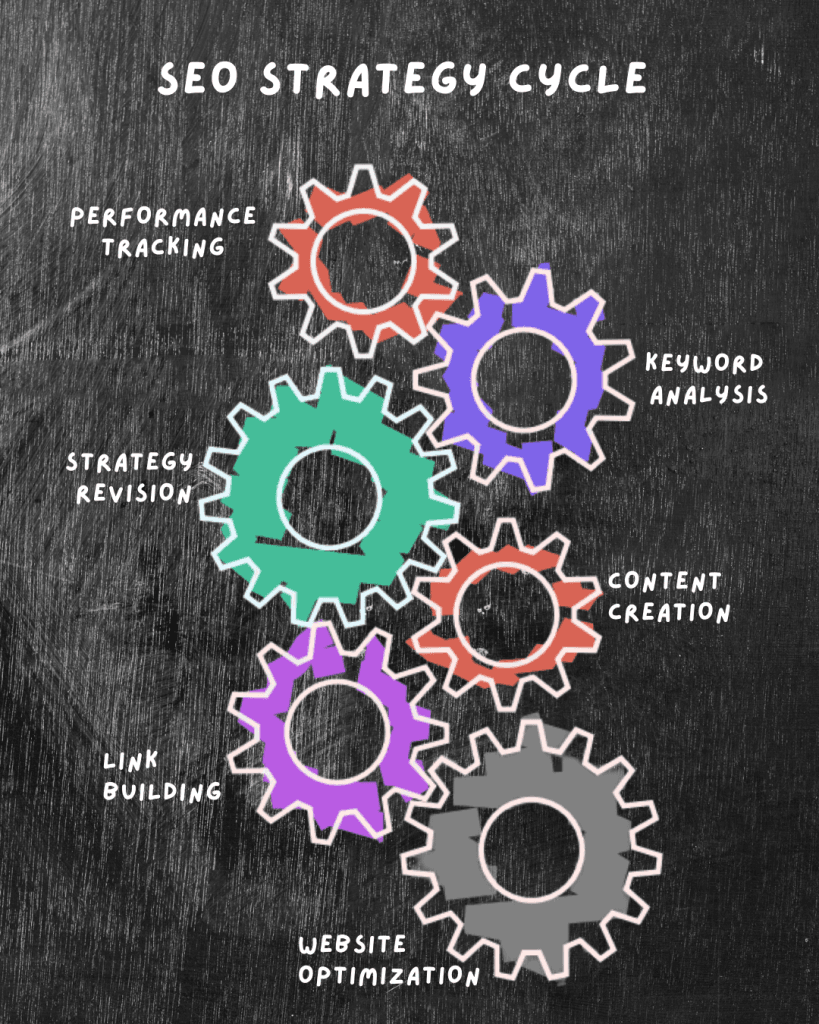Alright, small business owners! Feeling invisible online is no fun, right? Think of your website like a secret hideout – only a few know it’s there. But hey, in today’s digital world, not being online is like closing your doors. Thankfully, SEO strategies for small businesses can help you stand out and compete with the big guys AND snag those dream customers. This guide? Think of it as your roadmap, packed with actionable, affordable SEO strategies to light up your online presence and watch your business grow.
We’ll get down to brass tacks on small business SEO services you can tackle yourself. And we’ll answer the big question: does SEO work for small businesses? The answer? A resounding YES. Let’s dive in and transform your business.
Why SEO Actually Matters for Small Businesses
Imagine needing a coffee shop. You wouldn’t go hunting through dark alleyways, right? You’d head to something visible and simple. Think of your website like that. If you’re buried on page 10 of a Google search, no one’s going to find you.
SEO, in a nutshell, is about getting your business noticed. Think of the awesome upsides:
- More Eyeballs: Climb the search engine ladder and get your business seen by more potential customers.
- The Right Crowd: Attract the people who are actually looking for what your business offers.
- Become a Trustworthy Authority: Show up high in search results, and people automatically trust you.
- Saving Money: Contrary to popular belief, SEO is an affordable SEO strategy for small businesses. Think of it this way: you’re investing in your business instead of endlessly chucking cash at ads.
- Sticking Around: Build a strong SEO foundation and your website will keep working for you, attracting traffic for months, maybe even years!

Ready to build that foundation? Here are some affordable SEO strategies:
Making Your Website Rock: The SEO Foundation
Think of website optimization as your business’s online storefront, make it look good.
- Get Yourself a Great Website: The website should be easy to use, friendly, and mobile-friendly (that’s super important!). Over 60% of Canadians use their phones to browse, so you have to be mobile-ready. Get help with platforms like Shopify or Wix, and check out their SEO guides to stay on top of things. Design matters.
- Clean Up Your Website Addresses: Short, easy, and descriptive URLs helps people and search engines understand what your page is about. So, instead of a mess like www.rayatech.ca/page123?id=456, make it www.rayatech.ca/small-business-seo.
- Boost the Pages: Focus on your on-page elements:
- Page Titles: Create catchy titles using your keyword that precisely describes the page’s content. Think of this like your online business card.
- Headings (H1, H2, H3): Use headings to organize your information, making it easier to understand. Use your core keyword in the H1 and other relevant keywords in your subheadings.
- Meta Descriptions: Write short, enticing descriptions that show up in the search results. Think of it as an ad for your website!
- Alt Text for Images: Write some descriptive alt text for every image you have on your website – it’s better for search engines. It’s also super important for people who can’t see the pictures.
- Keyword Power in Content: Focus on what people are searching for. Put these search terms naturally within your headings, subheadings, and text. Don’t overdo it (no keyword stuffing!). Focus on writing useful and relevant information for your audience.
- Markup Your Pages with Schema: Use schema markup (structured data) to help search engines understand your business, especially for local businesses. Think of this as giving search engines extra information. It shows up as rich snippets and includes your business hours, customer reviews, and contact info. Look for the really great guide at Backlinko.com.
Getting Help From Google: Your Free Tools
The good news here is that Google offers some awesome free tools that can be part of your affordable SEO strategies.
- Set Up Google Analytics and Google Search Console:
- Google Analytics helps you track your website traffic and user behavior. It gives you insights into how to improve your SEO strategy.
- Google Search Console gives you a direct line to Google. You can monitor your website’s performance, see any problems, and even submit your site map. Make sure to use it to handle any problems that impact your site’s ranking!
Johnson Jones Group knows their stuff – they say these tools are essential for SEO.
- Create a Google Business Profile (GBP): Your GBP is super important for anyone with a local business. It lets you manage how your business looks on Google Search and Maps, including your business info, photos, and reviews. A well-optimized GBP can really boost your local search visibility and help you appear when people search for businesses like yours.
Keyword Research and Awesome Content: The Heart of SEO
This is how you connect with your audience.
- Find the Right Words: Use keyword research to find what people are searching for. Think of it as a deep dive into your potential customers’ minds. Focus on broad and long-tail keywords.
- Make Great Content: Write great content, like blog posts and videos, that demonstrate expertise. Make sure your content is top-notch.
- Keywords for Your Area: If you cater to a local place, add location keywords to headlines. For example, “Vancouver Web Design Services.” Local keywords ensure you attract local customers.
- The Long Game: Write content that is timeless and stays valuable over time.
Local SEO is Key: Winning the Local Game
If you serve a local market, this is key:
- Make Everything Consistent: Make sure your Name, Address, and Phone number (NAP) are the same everywhere online. Use consistent NAP citations.
- Use Local Keywords: Use local keywords on your website, starting with your page titles, descriptions, and content.
- Add a Map: Embed a Google Map on your contact page to help customers find your business.
- Get Some Reviews: Encourage customers to leave reviews. Getting positive reviews are vital.
Backlinks & Citations: Building Authority
- Get Backlinks: Get links from good websites – this is a ranking factor. Focus on getting links from reliable and relevant websites.
- Get Citations: Make citations on those local and industry-specific platforms, and make sure your company’s name, address, and phone number (NAP) are listed correctly.
Under the Hood: The Technology Side
- Speed Up Your Website: Site speed affects user experience, retention, and SEO. Optimize your images, cache, and get help from a hosting provider if you need it. This is so important!
- Link Your Pages: Link to other pages within your website, this gives search engines a lay of the landscape, and also improve user navigation and time spent on the pages.
- Make Your Website Secure: Securing your website with HTTPS is not optional, it’s a must! Make sure your site is secure.
Monitoring, Analyzing, and Adapting: SEO is Ongoing
SEO isn’t a set-it-and-forget-it. Keep an eye on things.
- Track Performance: Use tools like Google Analytics and Google Search Console to watch your website, keywords, and important metrics. Use the feedback and adjust accordingly.
- Stay Informed: SEO is always changing. Stay updated on trends and algorithms.
Time for Action!
These affordable SEO strategies for small businesses take time and effort, but the results can really transform the business. Through consistent monitoring, you can increase your online presence, and attract more traffic and growth. If you are getting overwhelmed, don’t hesitate to seek some help from small business SEO services.
Does SEO really work for small businesses today? You bet it does! It helps drive sales. Start today and get online success!
Need help with your Small Business SEO? Contact us at rayatech.ca for a free consultation!





